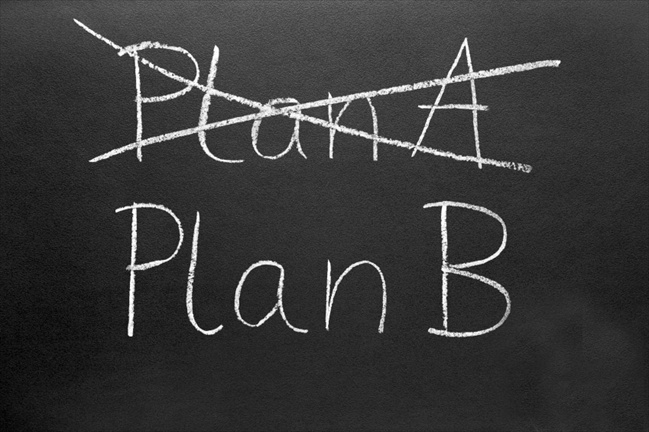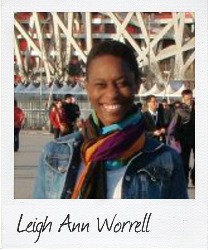"Sometimes life happens. Not everything always goes the way we planned"
August 9In Barbados, people learn the hard way that life doesn’t always go to plan. A little help is welcome, writes Leigh-Ann Worrell, 25, a Commonwealth Correspondent from St. Thomas, but you can’t always rely on others.
“God helps those who help themselves.” – Algernon Sidney
There is nothing wrong with asking for assistance. As the world continues to look down a dark barrel of fiscal challenges with seemingly no end in sight, those at the lower rungs of society, especially women, are being met with mounting burdens.
Certainly, in times like these, governments should step up and assist citizens including its women. But a brutal and pertinent question must be asked: when do the handouts end?
As crucial as it is to give aid in immediate and dire situations, methods of encouraging gradual self-assistance should also be placed on the front burner – by the women and the governments they look to for a cheque, a housing solution or school supplies.
Barbadians were recently reminded of the story of Keisha Brathwaite. She made national headlines after breaking into a government-owned housing unit in late 2011 and set up residence. The then 21-year-old was seven months pregnant and the mother of two young children and told the press she was fleeing from an abusive boyfriend.
She changed the locks and declared she did not intend to leave. “I ain’t got nowhere to go,” she said then, even as officials from the National Housing Corporation (NHC) attempted to evict her for not utilising the right channels.
After two weeks of illegal squatting, the NHC relocated her to another government housing unit. In a recent interview, Brathwaite admitted her actions were wrong. In addition, she said she suffered from public ridicule as a result of her actions, explaining that, “they (sic) were a lot of people who helped me and who were sympathetic, but there were people who were talking about me and saying that I should get out of the people’s house.”
“I remember one day I was at the hair salon and this woman was there getting her hair done. She was going on talking about the girl that break in the NHC house and saying all sorts of bad things about me,” she continued.
Was the woman in the salon justified in her comments? Are stories like Brathwaite’s corroborated or merely taken at face value due to sensationalism? Domestic abuse is a serious offense, yet in none of the articles which chronicled the young woman’s saga was it ever stated her boyfriend was charged or questioned.
The role of her family should be investigated as well. The recent follow-up story said Brathwaite often visited relatives who live in the area of the low-income unit she claimed as her own. Why did she not run to the warmth of family instead of committing a crime? Furthermore, in our search for a story that tugs the heartstrings, do we pay enough attention to those asking for assistance?
Sandy Samuels came into public conversation for two reasons: she was the mother of May-born triplets and said she had nowhere to go after leaving the hospital. She “pleaded” for the public’s assistance in providing her with a home and basic necessities for her newborns.
Some days later, it was revealed that Samuels stabbed the father of her children, rendering him unable to work and support his children.
“The reason that I am not working is because she [Samuels] stabbed me in my hand in November last year, in my back and on my upper arm,” he said. While Samuels was charged, Jones told police he did not want to pursue the case. Kesha Young is another young mother with an 18-month-old.
A few weeks ago, the 30-year-old told the Nation Newspaper that she had been caring for herself and her baby son on a $162 fortnightly allowance from the Welfare Department. She shares a “dilapidated” family home with two older brothers. She did not express any desire to find employment as a way to build herself and child out of poverty or even band together with her brothers to find a brighter way.
As a small-island developing state with no other natural resources except sun, sea and sand, Barbadians have always been encouraged to achieve excellence through education. The importance of this virtue is reinforced by government policies of free primary, secondary and tertiary education and a more recent addition of free bus fare for schoolchildren.
It is up to Barbadians to use these available resources to make the best possible decisions for ourselves and any offspring they may have.
Sometimes life happens. Not everything always goes the way we planned. Everyone needs a little help sometimes. But learning how to catch the fish reaps a greater reward than if the haul was merely handed to you.
photo credit: marsmet548 via photopin cc
…………………………………………………………………………………………………………………
About me:
I am a writer for Barbados Today. I am passionate about women’s rights issues, theatre arts and cats. I like hanging out with my friends, live for the beach and (sorta) enjoy cooking. I eventually to work in the gender and development field in any part of the world.
…………………………………………………………………………………………………………………
Opinions expressed in this article are those of the author and do not necessarily represent the views of the Commonwealth Youth Programme. Articles are published in a spirit of dialogue, respect and understanding. If you disagree, why not submit a response?
To learn more about becoming a Commonwealth Correspondent please visit: http://www.yourcommonwealth.org/submit-articles/commonwealthcorrespondents/
…………………………………………………………………………………………………………………





